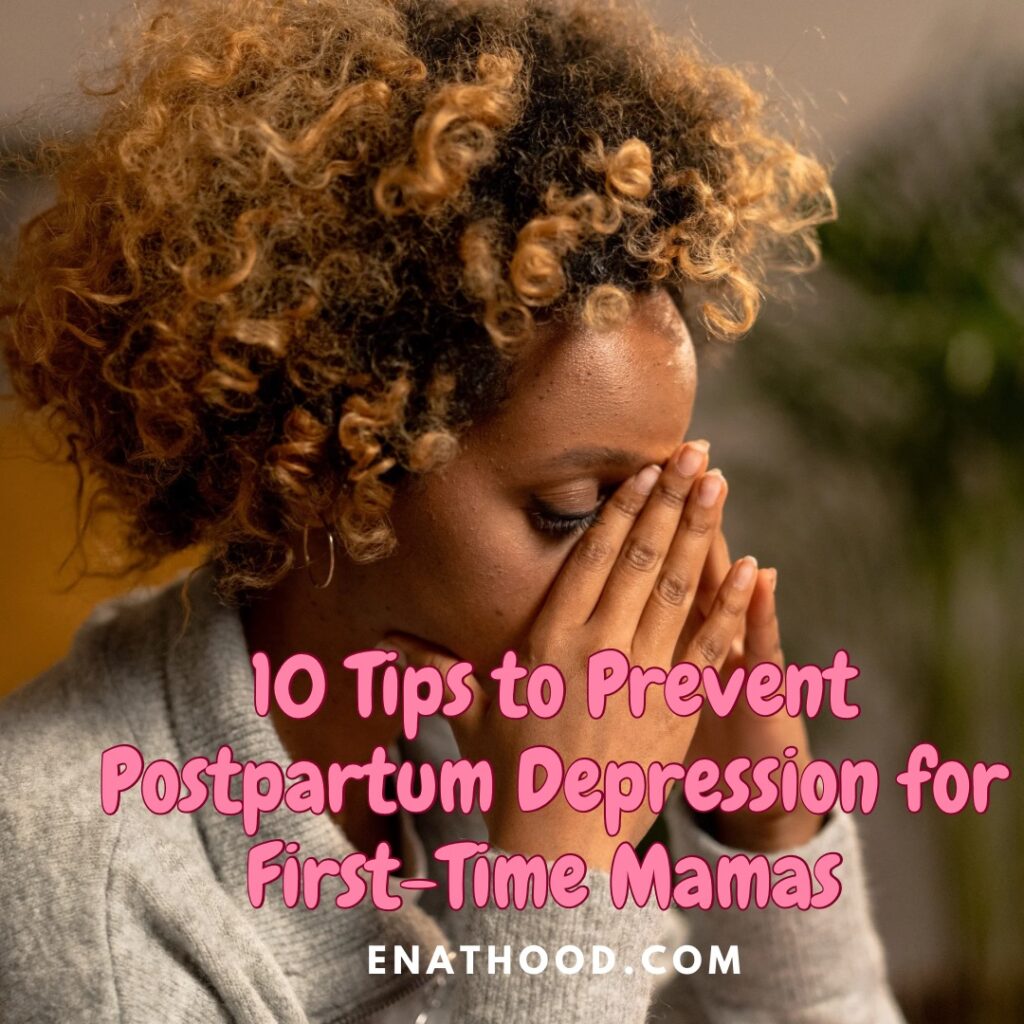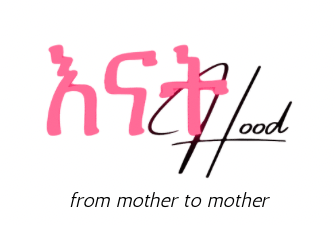
Embarking on the journey of motherhood for the first time in a new country during a pandemic in March 2020 added unique layers to an already profound experience.
Now, as a mother of three, including a newborn born amidst these challenging times, my postpartum journey unfolds against a complex backdrop.
Having shared my birth story from those early days, I intimately understand the intricacies and challenges that come with becoming a mother in such unprecedented circumstances.
In this blog post, we delve into a topic close to my heart: Postpartum Depression. Drawing from my own experiences, I share ten invaluable tips aimed at supporting and guiding mamas, especially first-time mamas in preventing and managing postpartum depression.
1. Understand the Signs and Symptoms of Postpartum Depression
The first step in preventing postpartum depression is understanding its signs and symptoms. Knowing what to look for, you can recognize potential issues early on and seek appropriate help.
Some common symptoms of postpartum depression include:
- Persistent sadness or feelings of emptiness
- Anxiety and irritability
- Difficulty sleeping or constant fatigue
- Loss of interest in activities once enjoyed
- Difficulty bonding with your baby
- Feelings of guilt or worthlessness
- Changes in appetite
- Suicidal thoughts or thoughts of harming your baby
- If you notice any of these symptoms lasting more than two weeks, you must contact your healthcare provider for assistance.
2. Create a Support System
Crafting a robust support system is a pivotal strategy in minimizing the risk of postpartum depression (PPD). Drawing from my personal journey as a mother, especially during the challenging times of the pandemic, I discovered the profound impact of having a dependable support network. Faced with the complexities of being a new mom in a new country during the pandemic, I sought solace and connection.
In those early days, I created the very blog you’re reading and launched a podcast. These platforms became my digital haven, a space where I could share my experiences and connect with a community of mothers who could relate to my journey. It wasn’t just about seeking help but about creating a shared space for mutual understanding and support. The emotional sustenance and practical advice exchanged within this community became a lifeline.
So, be bold in reaching out for assistance, whether it’s asking a friend for a heartfelt conversation or seeking practical help with daily tasks. My experience highlights the transformative power of building connections, even in the digital realm, as a potent tool in navigating the complexities of new motherhood.”
3. Prioritize Self-Care
Taking care of yourself is critical during the postpartum period. Make sure to prioritize your physical and emotional well-being as much as possible. That can include:
- Eating a healthy, balanced diet – nutrition deficiency impacts can contribute to postpartum depression . Eating well and supplementing as needed is very important. Talk with your healthcare provider about specific needs your body may have. I continue taking supplements I take during pregnancy, including prenatal, with my midwife’s approval.
- Getting regular exercise (with your doctor’s approval) – Taking a short walk and getting fresh air is very helpful.
- Getting enough sleep – I know well how sleep deprivation is during the early postpartum days. I suggest taking a nap with the baby. Also, if necessary, sleeping in rotation with a partner or someone who can help while we care for the baby during the nighttime is good.
- Taking time to relax and engage in activities you enjoy – listening to songs and music you like, reading a few pages, coloring, puzzle games, FaceTime with friends and family, watching comedy, or anything you enjoy doing can refresh your mind. Try to do it intentionally.
- Practicing stress-reduction techniques such as deep breathing, meditation, or yoga – Taking just a few moments each day to engage in these practices can help calm the mind, reduce anxiety, and promote a sense of inner peace.
For example, setting aside a few minutes in the morning for a guided meditation session or incorporating gentle yoga stretches into your daily routine can provide much-needed moments of relaxation amidst the chaos of new motherhood.
Additionally, deep breathing exercises can be seamlessly integrated into everyday tasks, such as taking slow, intentional breaths while nursing your baby or during moments of quiet reflection.
Remember, taking care of yourself is NOT selfish – it’s essential for your and your baby’s well-being.
4. Set Realistic Expectations
It’s crucial to set realistic expectations for yourself as a new mother.Understand that you DON’T have to be perfect, and it’s okay sometimes to feel overwhelmed.
Be patient with yourself and give yourself grace during this transition period.Recognize that it’s normal to have both good and bad days, and that’s perfectly okay.
5. Develop a Strong Bond with Your Baby
Establishing a robust connection with your baby serves as a powerful buffer against postpartum depression.
I highly recommend and advocate for breastfeeding as an invaluable addition to this bonding process, given its myriad benefits in preventing PPD and fostering a deeper connection.
Spend quality time engaging in skin-to-skin contact, cuddling, and conversing or singing to your baby.
These interactions strengthen the bond between you and your little one and contribute significantly to their development and overall well-being.
Breastfeeding, with its numerous advantages, becomes a cherished part of this bonding journey.
Our blog is an excellent resource for an abundance of breastfeeding tips and a supportive community, offering insights and shared experiences to enhance your breastfeeding journey and fortify the beautiful bond with your baby.
6. Discuss Your Feelings
Talking about your feelings and emotions can be incredibly therapeutic, especially during the postpartum period.
Share your thoughts and concerns with your partner, friends, family, or a mental health professional.
Remember, it’s common to experience a range of emotions as a new mother, and discussing them can help you process and manage them more effectively.
7. Monitor and Manage Your Mental Health
Keeping a close eye on your mental health during the postpartum period is essential. If you have a history of depression or anxiety, communicate this to your healthcare provider, as you may be at a higher risk for PPD.
Additionally, consider engaging in therapy or counseling to help navigate the emotional challenges of new motherhood.
8. Educate Yourself on Postpartum Depression
Knowledge is power. By educating yourself on PPD, its symptoms, and treatment options, you’ll be better equipped to recognize any issues and seek help.
Read books, attend workshops or classes, and talk to healthcare professionals to thoroughly understand this condition
9. Be Mindful of the Media You Consume
While social media platforms can offer connection and support, they can also exacerbate feelings of inadequacy and isolation.
The curated highlight reels often showcased on these platforms may create unrealistic expectations and foster comparison, leading to heightened stress and anxiety.
Limiting exposure to content that triggers negative emotions and prioritizing platforms that promote authenticity and positivity can significantly impact mental well-being during this vulnerable time.
Remember, it’s okay to unfollow accounts that don’t serve your mental health and to seek out resources that uplift and empower you on your postpartum journey.
10. Remember That You’re Not Alone
Finally, always remember that you’re not alone in this journey. Many new mothers experience postpartum depression , and there is help and support available.
Don’t be afraid to reach out for assistance; remember that it’s normal to feel a range of emotions during this time.
In conclusion, while the postpartum period can be challenging, preventing and managing PPD can make a significant difference in your overall well-being.
By understanding the signs and symptoms, prioritizing self-care, and seeking help when needed, you can enjoy this incredible journey into motherhood with confidence and joy.
Remember, you’re doing a fantastic job and not alone – we’re all rooting for you!

 Creative Ways to Inspire Your Kids’ Love for Learning
Creative Ways to Inspire Your Kids’ Love for Learning
Leave a Reply